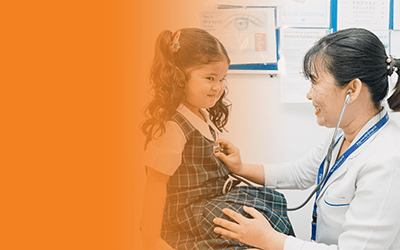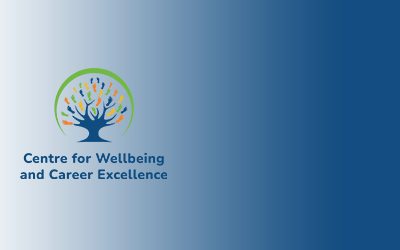Meet our Student Council Officers of 2024-2025






















Balance is the key to holistic health, and by adopting strategies to support each of the following five dimensions, students will be better prepared to tackle the difficulties, challenges, successes and joys that life presents.
5 DIMENSIONS OF HEALTH AND TIPS FOR OPTIMAL HEALTH
Balance is the key to holistic health, and by adopting strategies to support each of the following five dimensions, students will be better prepared to tackle the difficulties, challenges, successes and joys that life presents.
5 DIMENSIONS OF HEALTH AND TIPS FOR OPTIMAL HEALTH

The purpose of The Centre for Wellbeing and Career Excellence (CWCE) at Footprints International School is to ensure a positive school culture where everyone feels safe, cared for and supported. The focus is on various aspects, including child protection, social-emotional learning, career guidance, leadership, personal growth, and wellbeing for all students and staff.
MENTAL HEALTH AND WELLBEING
We view mental wellbeing as an essential indicator of social, emotional, and physical wellness, extending beyond the mere absence of mental illness. We adopt the World Health Organization’s definition, which emphasises that mental health and wellbeing encompass the ability to realise one’s potential, cope with life’s stresses, work productively, and contribute to the community.
A WHOLE-SCHOOL APPROACH
Our school embraces a whole-school approach, treating the entire school community as a unified entity. It involves coordinated action across three interconnected components: curriculum, teaching and learning, school ethos and environment, and family and community partnerships.
We strive to promote positive mental health and wellbeing for all members of our school community, including students, teachers, staff, parents, and carers. Recognising the profound impact of mental health on learning and achievement, we aim to support students in developing resilience, happiness, and success while preventing potential challenges before they arise.
Our Centre for Wellbeing and Career Excellence plays a vital role in creating a nurturing and supportive environment.It provides resources for personal and emotional wellbeing, including support groups and individual counselling. Additionally, we engage parents through webinars and on-site workshops on various wellbeing-related topics.
Moreover, the Centre actively contributes to students’ career excellence by offering career assessments, individual counselling, workshops, and information sessions on post-secondary education and career options. Students are also encouraged to participate in internships and work-integrated learning programmes, bridging the gap between education and work.
GUIDED BY 8 PRINCIPLES
Our approach to mental health and wellbeing is guided by eight key principles:
The purpose of The Centre for Wellbeing and Career Excellence (CWCE) at Footprints International School is to ensure a positive school culture where everyone feels safe, cared for and supported. The focus is on various aspects, including child protection, social-emotional learning, career guidance, leadership, personal growth, and wellbeing for all students and staff.
MENTAL HEALTH AND WELLBEING
We view mental wellbeing as an essential indicator of social, emotional, and physical wellness, extending beyond the mere absence of mental illness. We adopt the World Health Organization’s definition, which emphasises that mental health and wellbeing encompass the ability to realise one’s potential, cope with life’s stresses, work productively, and contribute to the community.
A WHOLE-SCHOOL APPROACH
Our school embraces a whole-school approach, treating the entire school community as a unified entity. It involves coordinated action across three interconnected components: curriculum, teaching and learning, school ethos and environment, and family and community partnerships.
We strive to promote positive mental health and wellbeing for all members of our school community, including students, teachers, staff, parents, and carers. Recognising the profound impact of mental health on learning and achievement, we aim to support students in developing resilience, happiness, and success while preventing potential challenges before they arise.
Our Centre for Wellbeing and Career Excellence plays a vital role in creating a nurturing and supportive environment.It provides resources for personal and emotional wellbeing, including support groups and individual counselling. Additionally, we engage parents through webinars and on-site workshops on various wellbeing-related topics.
Moreover, the Centre actively contributes to students’ career excellence by offering career assessments, individual counselling, workshops, and information sessions on post-secondary education and career options. Students are also encouraged to participate in internships and work-integrated learning programmes, bridging the gap between education and work.
GUIDED BY 8 PRINCIPLES
Our approach to mental health and wellbeing is guided by eight key principles:

To be healthy and live a long life, proper nutrition is crucial. The food we consume contains essential nutrients such as protein, carbohydrates, fats, vitamins, minerals, and electrolytes, which provide us with the energy and nourishment we need to be healthy, active, and able to learn, think, work, and move. When we do not get enough of these nutrients, it can lead to illnesses and infections.
Eating a variety of colourful and natural foods, such as fruits and vegetables, helps to promote healthy growth and prevent health problems. At Footprints, we encourage our students to bring their own nutritious lunches and snacks to school, or alternatively, to sign up for our healthy lunch menu.
Parents are urged to help their children choose well-balanced, wholesome, and appropriately sized snacks to bring to school. Sweet and sugary foods can leave students feeling tired, shaky or unfocused, while food which is nutritious gives students extra energy to concentrate and focus in class.
To be healthy and live a long life, proper nutrition is crucial. The food we consume contains essential nutrients such as protein, carbohydrates, fats, vitamins, minerals, and electrolytes, which provide us with the energy and nourishment we need to be healthy, active, and able to learn, think, work, and move. When we do not get enough of these nutrients, it can lead to illnesses and infections.
Eating a variety of colourful and natural foods, such as fruits and vegetables, helps to promote healthy growth and prevent health problems. At Footprints, we encourage our students to bring their own nutritious lunches and snacks to school, or alternatively, to sign up for our healthy lunch menu.
Parents are urged to help their children choose well-balanced, wholesome, and appropriately sized snacks to bring to school. Sweet and sugary foods can leave students feeling tired, shaky or unfocused, while food which is nutritious gives students extra energy to concentrate and focus in class.

Balance is the key to holistic health, and by adopting strategies to support each of the following five dimensions, students will be better prepared to tackle the difficulties, challenges, successes and joys that life presents.
5 DIMENSIONS OF HEALTH AND TIPS FOR OPTIMAL HEALTH
Balance is the key to holistic health, and by adopting strategies to support each of the following five dimensions, students will be better prepared to tackle the difficulties, challenges, successes and joys that life presents.
5 DIMENSIONS OF HEALTH AND TIPS FOR OPTIMAL HEALTH

The purpose of The Centre for Wellbeing and Career Excellence (CWCE) at Footprints International School is to ensure a positive school culture where everyone feels safe, cared for and supported. The focus is on various aspects, including child protection, social-emotional learning, career guidance, leadership, personal growth, and wellbeing for all students and staff.
MENTAL HEALTH AND WELLBEING
We view mental wellbeing as an essential indicator of social, emotional, and physical wellness, extending beyond the mere absence of mental illness. We adopt the World Health Organization’s definition, which emphasises that mental health and wellbeing encompass the ability to realise one’s potential, cope with life’s stresses, work productively, and contribute to the community.
A WHOLE-SCHOOL APPROACH
Our school embraces a whole-school approach, treating the entire school community as a unified entity. It involves coordinated action across three interconnected components: curriculum, teaching and learning, school ethos and environment, and family and community partnerships.
We strive to promote positive mental health and wellbeing for all members of our school community, including students, teachers, staff, parents, and carers. Recognising the profound impact of mental health on learning and achievement, we aim to support students in developing resilience, happiness, and success while preventing potential challenges before they arise.
Our Centre for Wellbeing and Career Excellence plays a vital role in creating a nurturing and supportive environment.It provides resources for personal and emotional wellbeing, including support groups and individual counselling. Additionally, we engage parents through webinars and on-site workshops on various wellbeing-related topics.
Moreover, the Centre actively contributes to students’ career excellence by offering career assessments, individual counselling, workshops, and information sessions on post-secondary education and career options. Students are also encouraged to participate in internships and work-integrated learning programmes, bridging the gap between education and work.
GUIDED BY 8 PRINCIPLES
Our approach to mental health and wellbeing is guided by eight key principles:
The purpose of The Centre for Wellbeing and Career Excellence (CWCE) at Footprints International School is to ensure a positive school culture where everyone feels safe, cared for and supported. The focus is on various aspects, including child protection, social-emotional learning, career guidance, leadership, personal growth, and wellbeing for all students and staff.
MENTAL HEALTH AND WELLBEING
We view mental wellbeing as an essential indicator of social, emotional, and physical wellness, extending beyond the mere absence of mental illness. We adopt the World Health Organization’s definition, which emphasises that mental health and wellbeing encompass the ability to realise one’s potential, cope with life’s stresses, work productively, and contribute to the community.
A WHOLE-SCHOOL APPROACH
Our school embraces a whole-school approach, treating the entire school community as a unified entity. It involves coordinated action across three interconnected components: curriculum, teaching and learning, school ethos and environment, and family and community partnerships.
We strive to promote positive mental health and wellbeing for all members of our school community, including students, teachers, staff, parents, and carers. Recognising the profound impact of mental health on learning and achievement, we aim to support students in developing resilience, happiness, and success while preventing potential challenges before they arise.
Our Centre for Wellbeing and Career Excellence plays a vital role in creating a nurturing and supportive environment.It provides resources for personal and emotional wellbeing, including support groups and individual counselling. Additionally, we engage parents through webinars and on-site workshops on various wellbeing-related topics.
Moreover, the Centre actively contributes to students’ career excellence by offering career assessments, individual counselling, workshops, and information sessions on post-secondary education and career options. Students are also encouraged to participate in internships and work-integrated learning programmes, bridging the gap between education and work.
GUIDED BY 8 PRINCIPLES
Our approach to mental health and wellbeing is guided by eight key principles:

To be healthy and live a long life, proper nutrition is crucial. The food we consume contains essential nutrients such as protein, carbohydrates, fats, vitamins, minerals, and electrolytes, which provide us with the energy and nourishment we need to be healthy, active, and able to learn, think, work, and move. When we do not get enough of these nutrients, it can lead to illnesses and infections.
Eating a variety of colourful and natural foods, such as fruits and vegetables, helps to promote healthy growth and prevent health problems. At Footprints, we encourage our students to bring their own nutritious lunches and snacks to school, or alternatively, to sign up for our healthy lunch menu.
Parents are urged to help their children choose well-balanced, wholesome, and appropriately sized snacks to bring to school. Sweet and sugary foods can leave students feeling tired, shaky or unfocused, while food which is nutritious gives students extra energy to concentrate and focus in class.
To be healthy and live a long life, proper nutrition is crucial. The food we consume contains essential nutrients such as protein, carbohydrates, fats, vitamins, minerals, and electrolytes, which provide us with the energy and nourishment we need to be healthy, active, and able to learn, think, work, and move. When we do not get enough of these nutrients, it can lead to illnesses and infections.
Eating a variety of colourful and natural foods, such as fruits and vegetables, helps to promote healthy growth and prevent health problems. At Footprints, we encourage our students to bring their own nutritious lunches and snacks to school, or alternatively, to sign up for our healthy lunch menu.
Parents are urged to help their children choose well-balanced, wholesome, and appropriately sized snacks to bring to school. Sweet and sugary foods can leave students feeling tired, shaky or unfocused, while food which is nutritious gives students extra energy to concentrate and focus in class.


